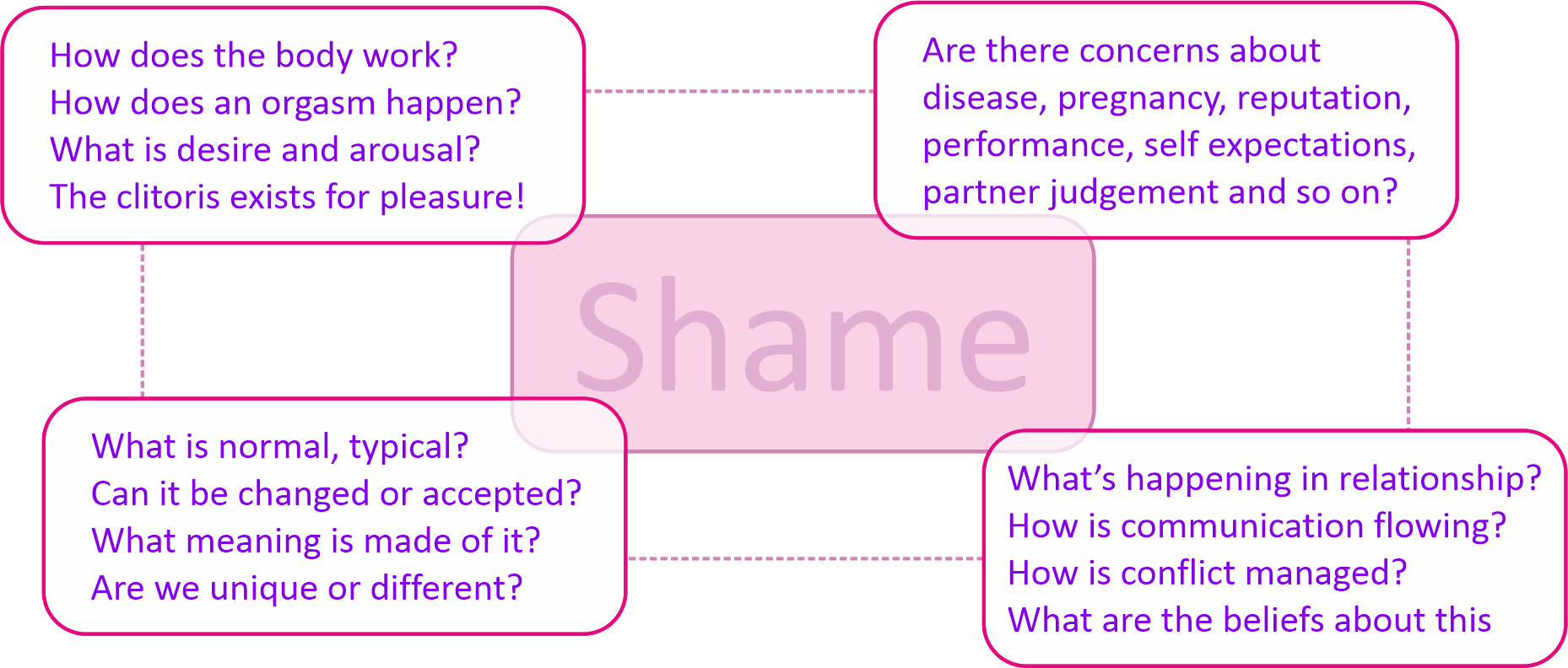Female Lack of Ability to Achieve Orgasm
What is ‘Female Lack of Ability to Achieve Orgasm’?
Female lack of ability to achieve orgasm is sometimes called Female Orgasmic Disorder, or Anorgasmia in the classical medical tradition. In this context, we are involved when a person with a vulva and vagina (and to be specific we should also say a person with a clitoris) who has this condition and it is causing them distress.
What must be established first
There are many reasons why a woman may be unable to achieve an orgasm and it’s important to rule out any medical reasons before further psychosexual investigations take place. So if you have not spoken to your GP about the problem yet, you will be encouraged to do so. Your doctor will be skilled and experienced in the medical aspects and should put you at ease to talk about it. Once your GP has ruled out any underlying medical issues we can get to work.
Understanding the Context
When does the problem occur and how long has it been happening? Are other related problems happening? How do you feel about your partner(s) if relevant? Can you achieve an orgasm in solo sex or other circumstances? What is your attitude towards masturbation? How well do you understand your anatomy? Do you use porn and what is your masturbation style? Do you smoke, drink, use recreational drugs or have lifestyle behaviours that can impact arousal response? Has anything affected you in the past? Have previous sexual experiences shaped your views or expectations?
Understanding your perspective
We need to know what aspect of the problem is causing you the most distress. What are your underlying beliefs that inform this distress. If some ‘shoulds’ emerge there may be opportunities for challenge, re-framing and psycho-education. We are complex beings living in complex times and we can usually benefit from some self-compassion. Good availability of clear information about the female sexual anatomy and arousal model is a recent phenomena. You may have some culturally conditioned disengagement with your entitlement to informed awareness of your pleasure processes. What part may self image, anxiety and fear of pain be playing? What is your experience of, and attitude to, faking orgasm? What might be the consequences of this?

Exercises
If appropriate there are a number of exercises that can help you gain confidence, understanding of your unique arousal style and mastery of your habitual thought processes.

